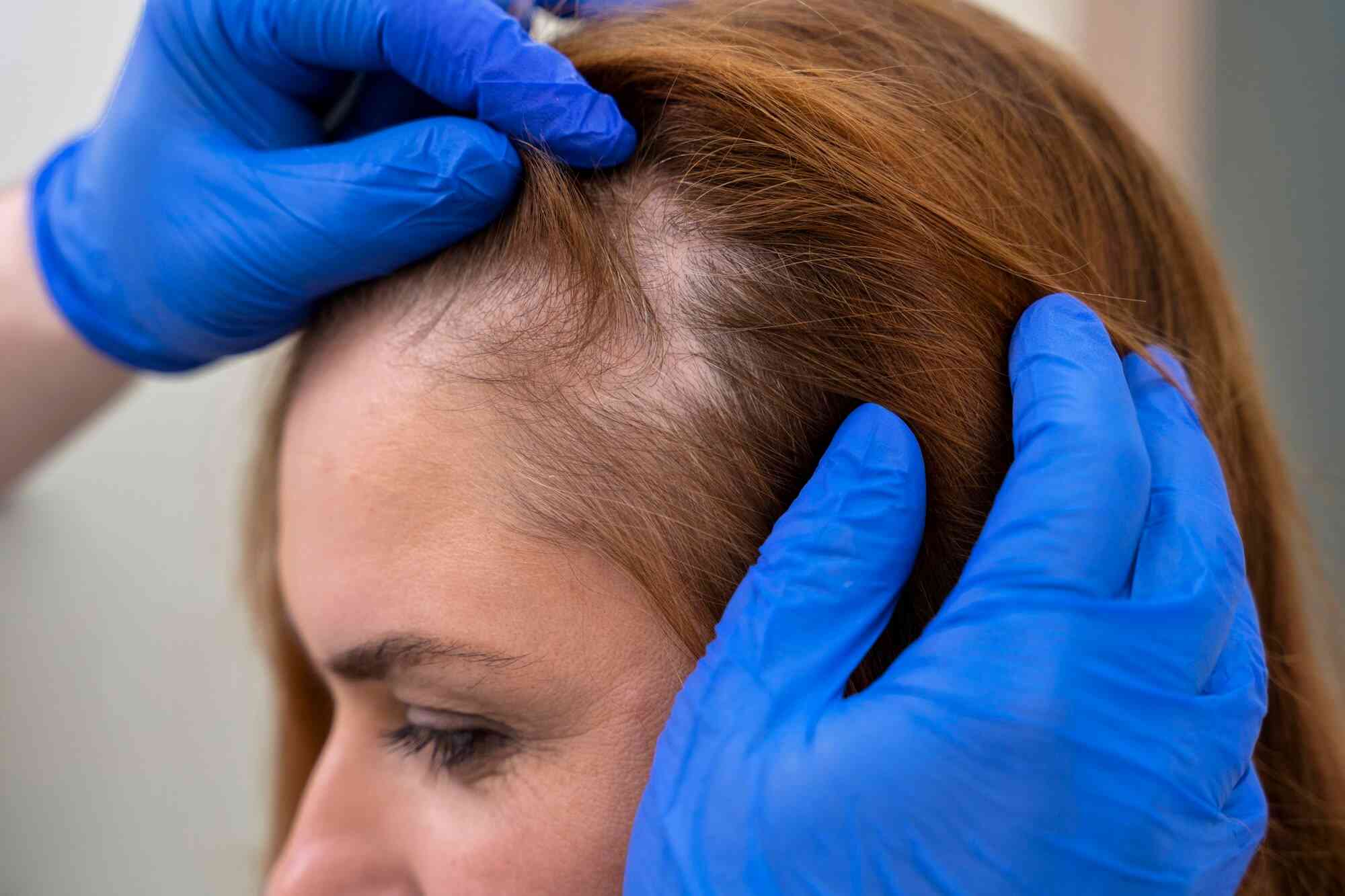Have you been sick or noticed unusual mood, hair, and skin changes?
You might be shocked when you realize they might be the signs of Zinc deficiency in females.
A common challenge many women face without even knowing it!
Zinc is an important microelement that plays many important functions in the body.
It is crucial for the regulation of cell growth, hormone release, and keeping our skin healthy.
In this article, we’ll discover 7 shocking signs of zinc deficiency in females that you should be aware of.
By knowing these signs early, you can improve your body. Ready to know these signs? Let’s dive in.
Zinc deficiency
Zinc deficiency is a global health problem that many women suffer from especially in developed countries where diets may lack adequate zinc sources.
According to the World Health Organization (WHO), an estimated 2 billion people worldwide are affected by zinc deficiency, with women and children being particularly vulnerable.
This may happen because many diets, particularly those low in animal products, may lack sufficient zinc.
Foods rich in zinc include meat, shellfish, legumes, seeds, nuts, and dairy products.
Also, because of the increased demand especially during periods of growth.
Such as adolescence, pregnancy, and lactation, women have higher zinc requirements can lead to deficiency.
When your body isn’t getting enough zinc, it can quietly affect your health.
Many women may not realize that a deficiency in this vital mineral can lead to a wide range of symptoms.
From fatigue to skin issues, here are 7 chocked signs of zinc deficiency in females.

7 shocking signs of zinc deficiency in females.
When your body suffers from zinc deficiency, it doesn't always scream or shout.
But it gives you signs that early discovering them will help you provide your body with good treatment.
1. Hair loss
Sudden Hair thinning or loss is one of the earliest and most recognized signs of zinc deficiency in females.
Zinc plays an important role in keeping your hair healthy by providing support for tissue growth, cell reproduction, and the repair of damaged hair follicles.
When your body suffers from zinc deficiency, the health of your hair follicles can suffer also, leading to weak hair that breaks easily or heavily falls.
Zinc also supports oil production on the scalp, known as sebum.
It makes your hair more moisturized and nourished.
Zinc deficiency disturbs this balance by causing dryness and weakness.
Additionally, it can lead to a condition called telogen effluvium, in which many hair follicles enter the resting phase, causing significant hair shedding.
2. Wounds not healing properly.
Infections are the most common signs of zinc deficiency in females.
Zinc plays a key role in immune response, as it supports in identifying and attacking viruses and bacteria.
When you suffer from zinc deficiency, your immune system becomes weak and less effective, leaving you more vulnerable to illness.
Women with zinc deficiency might notice that even minor illnesses like colds or sore throats take longer time to recover than usual.
It indicates that the immune system isn’t working at full capacity.
3. Skin problems
One of the most visible signs of zinc deficiency in females is dryness, rashes, or acne.
When the body is suffering from sufficient zinc, the ability to heal or renew itself becomes compromised.
This leads to dryness that doesn’t respond well to moisturizers, as the deeper layer of skin is not hydrated enough or receives the necessary support for hydration.
Zinc also plays a vital role in oil production on the skin, so without enough of it, the skin may become too dry or too oily, leading to unhealed pores and breakouts.
Other signs of zinc deficiency in females are suffering from sensitivity to irritants, redness, inflamed, or prone.
4. Irregular menstrual cycles
Zinc plays a vital role in producing and functioning hormones like estrogen and progesterone, which are key to maintaining a regular and healthy menstrual cycle.
Low zinc in your body can cause unbalanced hormones which lead to irregular periods.
This is considered one of the most visual signs of Zinc deficiency in females because it makes heavier and more painful periods.
One of the psychological signs of zinc deficiency in females is having stress levels which leads to some symptoms like increasing anxiety and disrupted sleep.
5. Mood swings, anxiety, or brain fog
Mood Swings and anxiety are significant signs of zinc deficiency in females.
Zinc plays a key role in Nero's system function, directly impacting mood stability, mental clarity, and emotional well-being.
Women with zinc deficiency may find themselves feeling more emotionally, with unexplained mood.
In some cases, this can even lead to emotional sickness, making it harder to enjoy daily activities or stay positive in challenging situations.
Zinc deficiency can also disrupt sleep patterns as you fall asleep, which can lead to an unfixed mood.
6. Chronic fatigue
Chronic Fatigue is one of the most debilitating signs of zinc deficiency in females, as zinc plays a fundamental role in energy production.
If you’re constantly feeling tired or lacking in energy, despite how much sleep and rest you have.
It could be a sign that your body isn’t getting enough zinc.
This fatigue can manifest in both physical and mental exhaustion, making daily activities more challenging.
7. Altered sense of taste and smell
If you feel changes in your senses like taste and smell, it may be one of the signs of Zinc deficiency in females.
Zinc deficiency could affect your ability to test or smile.
You feel the taste of the food is too blended and the smell seems to be faint. This is because your brain may struggle to receive or interpret signals from taste buds and olfactory cells.
Fortunately, increasing zinc levels can bring these senses back to normal.

How to increase zinc levels in your body?
If you notice these signs of Zinc deficiency in females and want to level up zinc levels in your body.
You can eat zinc-rich foods like (red meat, nuts, seeds, wild rice, and seafood ( oysters and shrimps).
Or you can take supplements, which can be a helpful option.
Zinc gluconate and zinc sulfate are common forms. For adults, a daily dosage of 8-12 mg is typically recommended.
Summary
As you see, zinc plays a vital role in your health.
As it affects your body starting from your senses to changing mood and stress.
So being aware of the signs of zinc deficiency in females can help you bring back your healthy body.


You must be logged in to post a comment.